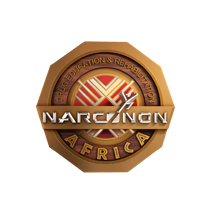The “Devils Breath” – Scopolamine

Imagine a Drug So Potent It Can Erase Your Memories
Scopolamine, a naturally occurring alkaloid derived from plants belonging to the nightshade family, can cloud your judgment and erase your memories, leaving you vulnerable and unaware of your own actions. This is the chilling reality associated with scopolamine, a substance often whispered about in hushed tones and known by the sinister name “Devil’s Breath.” While it possesses legitimate medical applications, its dark side, marked by its use in criminal activities and the profound dangers of its misuse, demands our attention and understanding, particularly here in South Africa.
For centuries, scopolamine has been known for its psychoactive properties. In modern medicine, scopolamine is used to treat motion sickness, postoperative nausea, and certain eye conditions, typically administered in controlled and carefully measured doses. The drug’s potential for abuse casts a long shadow in its illicit form, often as a tasteless and odourless powder; scopolamine can be easily administered without the victims’ knowledge. This is where the terrifying effects begin to manifest.
One of the Most Alarming Consequences of Scopolamine is Profound Amnesia
Individuals under its influence often have no recollection of what transpired while the drug was active in their system. This memory loss is coupled with a state of heightened suggestibility, though it’s crucial to understand this isn’t mind control in the fictional sense. Instead, the drug induces confusion and a diminished capacity for critical thinking, making individuals more compliant with the requests of others. Hallucinations, often disturbing and indistinguishable from reality, further contribute to the terrifying experience. Victims also suffer from disorientation, blurred vision, a rapid heartbeat, and difficulty speaking.
The dangers of scopolamine extend beyond its immediate effects. Overdosing, even unintentionally, can lead to severe anticholinergic syndrome, a potentially life-threatening condition characterised by a rapid heart rate, dangerously elevated body temperature, intense hallucinations, and even a coma.
For individuals who fall victim to scopolamine’s grip, whether through malicious intent or through its misuse, the path to recovery can be complex. The psychological trauma of experiencing such a profound loss of control and memory can be significant. This is where specialised rehabilitation programs, such as those offered by Narconon Africa, become crucial. Effective rehabilitation addresses not only the immediate physical effects but also the deep-seated emotional and psychological scars left behind. A comprehensive rehabilitation approach understands that overcoming the impact of scopolamine involves more than just detoxification, it requires rebuilding trust, processing trauma, and developing coping mechanisms to move forward.
Sources:
- https://www.ncbi.nlm.nih.gov/
- https://dev.drugbank.com/guides/implementation/using_drugbank_target_data
- https://medlineplus.gov/druginformation.html

